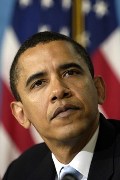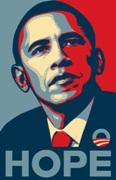ABA Journal Story on YouTube and Copyright Infringement
 I’m quoted in a story in this month’s ABA Journal on the interaction between copyright law and websites that host user-generated content, such as YouTube. YouTube is defending itself right now in a lawsuit pending in the Southern District of New York brought by the media company Viacom. I analyzed the Viacom complaint in a post over on Prawfsblawg shortly after it was filed—all the way back in March 2007. (I recently checked the docket, and the case appears to still be in discovery. The gears of litigation turn slowly.)
I’m quoted in a story in this month’s ABA Journal on the interaction between copyright law and websites that host user-generated content, such as YouTube. YouTube is defending itself right now in a lawsuit pending in the Southern District of New York brought by the media company Viacom. I analyzed the Viacom complaint in a post over on Prawfsblawg shortly after it was filed—all the way back in March 2007. (I recently checked the docket, and the case appears to still be in discovery. The gears of litigation turn slowly.)
The quote in the article is from a later post looking at the implications of a recent Northern District of California decision—Io v. Veoh—for the YouTube case. While most observers saw the defense win in Io to be good news for YouTube, I saw elements of the reasoning that I thought could pose problems for YouTube. That’s because I’ve long argued that the key good fact for Viacom, and possibly the main reason it sued, was not simply the wide availability of Viacom content on YouTube, but this allegation, from Paragraph 7 of the complaint:


 (This is the second in a series of posts on Fairey v. Associated Press, a copyright infringement case filed in New York on Monday involving the Obama “Hope” poster at right. See the
(This is the second in a series of posts on Fairey v. Associated Press, a copyright infringement case filed in New York on Monday involving the Obama “Hope” poster at right. See the